The Detroit Pistons are a professional basketball team based in Detroit, Michigan. They are part of the NBA's Eastern Conference, playing in the Central Division. Their home games are held at Little Caesars Arena in Midtown Detroit. The Pistons are a significant part of Detroit's sports culture.
1937: Zollner Pistons Founded
In 1937, Fred Zollner sponsored a semi-professional company basketball team called the Fort Wayne Zollner Pistons after receiving a request from his workers.
1937: Team Founded as Fort Wayne Zollner Pistons
In 1937, the team was founded as the Fort Wayne Zollner Pistons, a semi-professional company basketball team based in Fort Wayne, Indiana.
1941: Turned Professional
In 1941, the Fort Wayne Zollner Pistons turned professional, becoming a member of the National Basketball League (NBL).
1941: Joined National Basketball League
In 1941, the Zollner Pistons transitioned from a works team and joined the National Basketball League (NBL).
1944: Won NBL Championship
In 1944, the Fort Wayne Zollner Pistons won the National Basketball League (NBL) championship.
1944: NBL Champions and World Professional Basketball Tournament Winner
In 1944, the Zollner Pistons were NBL champions and also won the World Professional Basketball Tournament.
1945: Won NBL Championship Again
In 1945, the Fort Wayne Zollner Pistons secured their second National Basketball League (NBL) championship.
1945: NBL Champions
In 1945, the Zollner Pistons were NBL champions.
1946: Won World Professional Basketball Tournament
In 1946, the Zollner Pistons won the World Professional Basketball Tournament.
1947: Lost Detroit Gems
In 1947, Detroit lost both the Detroit Gems of the NBL (who became the Minneapolis Lakers) and the Detroit Falcons of the BAA.
1948: Joined BAA
In 1948, the Fort Wayne Zollner Pistons joined the Basketball Association of America (BAA).
1948: Team Became Fort Wayne Pistons, Joined BAA
In 1948, the team became the Fort Wayne Pistons and jumped to the Basketball Association of America (BAA).
1949: Formation of NBA
In 1949, Fred Zollner brokered the formation of the National Basketball Association (NBA) from the BAA and the NBL at his kitchen table.
1949: Became Part of the NBA
In 1949, the National Basketball League (NBL) and Basketball Association of America (BAA) merged to become the NBA, and the Fort Wayne Zollner Pistons became part of the merged league.
1955: Accusations of Intentionally Losing NBA Finals
During the 1955 NBA Finals, there were accusations that the Detroit Pistons may have intentionally lost the series to the Syracuse Nationals, particularly Game 7.
1956: Decision to Move Team From Fort Wayne
After the 1956 season, Fred Zollner decided that Fort Wayne was too small to support an NBA team and announced the team would be playing elsewhere in the coming season. He ultimately settled on Detroit.
1957: Franchise Moved to Detroit
In 1957, the Fort Wayne Zollner Pistons franchise relocated to Detroit.
1964: Howell traded to the Baltimore Bullets
In 1964, Bailey Howell was traded to the Baltimore Bullets.
1968: DeBusschere Traded to the Knicks
During the 1968-69 season, Dave DeBusschere was traded to the New York Knicks for Howard Komives and Walt Bellamy.
1969: Boston Celtics Last Back-To-Back Championship
In 1969, the Boston Celtics were the last team before the 1988 Los Angeles Lakers to win back-to-back NBA Championships.
1974: Zollner Sold Team to Bill Davidson
In 1974, Fred Zollner sold the team to glass magnate Bill Davidson, who became the team's principal owner.
1974: Detroit hadn't won in Portland since
In 1990, the Pistons went to Portland, where they had not won a game since 1974, to play Games 3, 4 and 5.
1978: Hired Dick Vitale
In 1978, Dick Vitale, the former head coach at the University of Detroit, was hired as the head coach of the Detroit Pistons.
1978: Lightning Bolt Uniform
In 1978, the Detroit Pistons introduced a uniform featuring lightning bolts on the sides and in the wordmark on the front of the jerseys.
1978: Moved to the Silverdome in Pontiac
In 1978, the Detroit Pistons moved to the Silverdome in Pontiac.
1979: "Bad Boys" Era Logo
In 1979 the "Bad Boys" era logo was used by the Pistons
1980: Poor Record and Losing Streak
In 1979-80, the Detroit Pistons had a 16-66 record and lost their last 14 games of the season, contributing to a then-NBA record losing streak.
1981: Return to Classic Look
In 1981, the Pistons discontinued the lightning bolt theme and returned to its classic block lettering and simple side panel pattern.
1981: Consecutive Conference Finals Appearances
The Detroit Pistons reach their sixth straight season in the Eastern Conference Finals, squaring off against the Celtics. This puts the Pistons second on the all-time list of most consecutive conference finals appearances, behind only the Los Angeles Lakers, who appeared in eight straight conference finals from the 1981–82 season.
February 1982: Acquired Bill Laimbeer
In February 1982, the Detroit Pistons acquired center Bill Laimbeer in a trade with the Cleveland Cavaliers.
1983: Hired Chuck Daly as Head Coach
In 1983, the Detroit Pistons hired Chuck Daly as their head coach.
1984: Lost to New York Knicks in Playoffs
In 1984, the Detroit Pistons lost a tough five-game series to the New York Knicks, 3–2, in the playoffs.
1985: Lost to Boston Celtics in Conference Semifinals
In the 1985 playoffs, the Detroit Pistons lost to the defending champion Boston Celtics in six games in the conference semifinals.
1986: Acquired Key Players and Adopted "Bad Boys" Style
Prior to the 1986-87 season, the Detroit Pistons acquired John Salley, Dennis Rodman, and Adrian Dantley. The team adopted a physical, defense-oriented style of play, earning them the nickname "Bad Boys".
1987: Raiders Merchandise Exchange
At the start of the 1987–88 season, Al Davis, owner of the Los Angeles Raiders, sent Raiders merchandise to the Pistons to acknowledge their shared physical style of play.
1987: Lost Eastern Conference Finals to Celtics
In 1987, the Detroit Pistons reached the Eastern Conference Finals but lost to the Boston Celtics in a tough seven-game series after a controversial Game 5 loss.
1988: Moved to The Palace of Auburn Hills
Prior to the 1988-89 season, the Detroit Pistons moved to The Palace of Auburn Hills, the first NBA arena financed entirely with private funds.
1988: Consecutive Conference Finals Appearances
The Detroit Pistons reach their sixth straight season in the Eastern Conference Finals, squaring off against the Celtics. This puts the Pistons second on the all-time list of most consecutive conference finals appearances, behind only the Los Angeles Lakers, who appeared in eight straight conference finals to the 1988–89 seasons.
1989: Won First NBA Championship
In 1989, the Detroit Pistons completed their roster by trading Adrian Dantley for Mark Aguirre, won 63 games, and swept the Los Angeles Lakers in the NBA Finals to win their first NBA championship.
1990: Won Second Consecutive NBA Championship
In 1990, the Detroit Pistons defended their title, winning their second consecutive NBA championship by defeating the Portland Trail Blazers in the NBA Finals. Vinnie Johnson's game-winning shot earned him the nickname "007".
1990: Advance to the NBA Finals for the first time since 1990
In the 2004 playoffs, after defeating the Milwaukee Bucks in five games, they defeated the defending Eastern Conference champion New Jersey Nets in seven games after coming back from a 3–2 deficit. The Pistons then defeated the Pacers, coached by Rick Carlisle, in six tough games to advance to the NBA Finals for the first time since 1990.
1990: First Playoff Series Sweep Since 1990
The Pistons opened the 2007 NBA playoffs with a 4–0 victory over the Orlando Magic, their first playoff series sweep since 1990.
1991: Traded Edwards and Waived Johnson
After getting swept by the Bulls, the Detroit Pistons traded James Edwards and waived Vinnie Johnson during the off-season of 1991.
1991: Swept by Chicago Bulls in Conference Finals
In 1991, the Detroit Pistons' championship run ended as they were swept by the Chicago Bulls in the Eastern Conference Finals, and were remembered for walking off the court before the game ended.
1991: First Playoff Series Victory since 1991
In 1991, under Rick Carlisle's leadership, the Detroit Pistons achieved their first playoff series victory since 1991 and secured their first 50-win season since 1997.
1991: Advanced to Eastern Conference Finals
The Detroit Pistons advanced to the 2003 Eastern Conference Finals for the first time since 1991, but were swept by the New Jersey Nets.
1991: First post-season meeting with Chicago Bulls Since 1991
The team advanced to face the Chicago Bulls, marking the first time that the Central Division rivals had met in the postseason since 1991.
1992: Lost to Knicks in Playoffs, Daly Resigned
In the 1991–92 season, the Detroit Pistons finished with a 48–34 record. In the first round of the 1992 NBA playoffs, the Pistons were defeated by the New York Knicks in five games. Chuck Daly resigned as head coach after the season.
1994: Thomas Retired, Team Bottomed Out
In 1994, Isiah Thomas retired from the Detroit Pistons, and the team bottomed out, finishing with a 20–62 record.
1994: First NBA Finals Game 7 since 1994
In 2005, after winning game 6 against the San Antonio Spurs, the Pistons set up the first NBA Finals Game 7 since 1994. They would go on to lose that game.
November 1, 1996: Hooper Joins the Team
On November 1, 1996, Hooper, a horse mascot wearing a Pistons jersey, became a part of the team, replacing Sir Slam A Lot.
1996: "Bad Boys" Era Logo Ends
In 1996 the "Bad Boys" era logo ended
1996: Team Colors Change to Teal, Burgundy, Gold and Black
In 1996, the Detroit Pistons changed their team colors from the traditional red and blue to teal, burgundy, gold, and black. This move was unpopular with fans and the only color that did not change was white.
1996: Teal Era Begins
In 1996, the Pistons changed their colors to teal, black, yellow and red and unveiled a new logo with a horse's head and flaming mane.
1997: Best Regular Season Record Since 1997
The Detroit Pistons finished the 2004 NBA season with a 54-28 record, their best record since 1997.
1997: First 50-Win Season Since 1991
Under Rick Carlisle's leadership, the Detroit Pistons achieved their first 50-win season since 1997 and secured their first playoff series victory since 1991.
1998: Joe Dumars Retires
Joe Dumars retired from the Detroit Pistons following the 1998–99 season after a successful career with the team.
1999: San Antonio Spurs third NBA championship since 1999
In 2005, the Detroit Pistons lost Game 7 of the NBA Finals to the San Antonio Spurs, who won their third NBA championship since 1999.
2000: Tough Season and Coaching Change
During the 2000-01 season, the Detroit Pistons went 32-50. Following the season, George Irvine was fired as head coach and Rick Carlisle was hired. The franchise also returned to its traditional red, white, and blue colors.
2000: Joe Dumars Hired, Grant Hill Leaves
Following being swept by the Miami Heat in the 2000 playoffs, Joe Dumars was hired as the Pistons' president of basketball operations. Grant Hill left for the Orlando Magic, but Dumars arranged a sign and trade, acquiring Ben Wallace and Chucky Atkins in exchange.
2001: Return to Traditional Colors
In 2001, the Detroit Pistons returned to the traditional red, white, and blue colors and a uniform pattern taking cues from the 1981–1996 threads.
2002: Roster Revamp
In the 2002 off-season, Joe Dumars revamped the Detroit Pistons' roster by signing free agent Chauncey Billups, acquiring Richard "Rip" Hamilton from the Washington Wizards, and drafting Tayshaun Prince from Kentucky.
2003: Rick Carlisle Fired
Despite team improvement, Rick Carlisle was fired in the 2003 off-season due to several reasons, including reluctance to play younger players, player disagreements, conservative offense, Larry Brown's availability, and strained relations with the owner. Larry Brown accepted the job that summer.
2003: Advanced to Eastern Conference Finals
The Detroit Pistons advanced to the 2003 Eastern Conference Finals for the first time since 1991, but were swept by the New Jersey Nets.
February 2004: Acquisition of Rasheed Wallace
In February 2004, the Detroit Pistons acquired Rasheed Wallace, completing their transformation into a championship team. He added another big man to pose a threat from all parts of the court.
2004: Malice at the Palace
The 2004-05 Detroit Pistons season was marked by the infamous "Malice at the Palace", a major controversy and one of the largest fan-player incidents in American sports. It resulted in heavy fines and suspensions for several players.
2005: Larry Brown's Departure
In 2005, Larry Brown's contract was bought out by the Detroit Pistons due to health concerns and rumors of pursuing other jobs. He was promptly named head coach of the New York Knicks, while the Pistons hired Flip Saunders.
2005: Hooper Remains Part of the Team
In 2005, despite the horsepower theme being phased out, Hooper's popularity allowed him to remain a part of the team.
2005: Loss in NBA Finals Game 7 to the Spurs
In 2005, the Detroit Pistons lost Game 7 of the NBA Finals to the San Antonio Spurs, who won their third NBA championship since 1999. The Pistons fought back to win Game 6 in San Antonio, setting up the first NBA Finals Game 7 since 1994.
2005: Classic Logo Design
In 2005, the Detroit Pistons switched to a more classic logo design, moving away from the horse's head and flaming mane logo.
2006: Defeated by Miami Heat in Eastern Conference Finals
In the 2006 NBA playoffs, the Detroit Pistons defeated the Milwaukee Bucks but struggled against the Cleveland Cavaliers. Ultimately, the Miami Heat defeated the Pistons in six games en route to the 2006 NBA championship.
January 16, 2007: Signing of Chris Webber
On January 16, 2007, the Detroit Pistons signed free agent Chris Webber to address the void at center left by Ben Wallace.
2007: Rasheed Wallace Becomes New Center
At the start of the 2007-08 season, Rasheed Wallace became the Detroit Pistons' new center.
2007: NBA Draft and Re-Signings
In the 2007 NBA draft, the Detroit Pistons selected Rodney Stuckey and Arron Afflalo. They also re-signed Chauncey Billups and key players Amir Johnson and Antonio McDyess.
2007: Eliminated by Cleveland Cavaliers in Eastern Conference Finals
In the 2007 NBA playoffs, the Detroit Pistons swept the Orlando Magic and defeated the Chicago Bulls to advance to the Eastern Conference Finals for the fifth consecutive season, but were ultimately eliminated by the Cleveland Cavaliers in six games.
June 3, 2008: Flip Saunders Not Returning as Head Coach
On June 3, 2008, the Detroit Pistons announced that Flip Saunders would not return as head coach.
June 10, 2008: Michael Curry Hired as Head Coach
On June 10, 2008, the Detroit Pistons hired Michael Curry to be their new head coach.
November 3, 2008: Trade of Chauncey Billups and Antonio McDyess for Allen Iverson
On November 3, 2008, the Detroit Pistons traded Chauncey Billups and Antonio McDyess to the Denver Nuggets for Allen Iverson. This trade marked the start of a new rebuilding process.
2008: Finished Season with 59-23 Record
The Detroit Pistons finished the 2007-08 NBA season with the second-best record in the league at 59-23. Detroit would advance to the Eastern Conference Finals for the sixth straight season, squaring off against the Celtics.
April 10, 2009: Pistons Clinch Playoff Berth
On April 10, 2009, the Detroit Pistons clinched a playoff berth after a season marked by controversies, injuries, and poor performance that led to a drop in the standings.
June 30, 2009: Curry Fired and Iverson Signs with Grizzlies
On June 30, 2009, the Detroit Pistons fired Curry as head coach. Allen Iverson also signed with the Memphis Grizzlies during the off-season.
July 8, 2009: John Kuester Hired as Head Coach
On July 8, 2009, the Detroit Pistons hired former Cavaliers assistant coach John Kuester to be the new head coach.
August 12, 2009: Ben Wallace Re-Signed
On August 12, 2009, the Detroit Pistons re-signed Ben Wallace.
2009: Bill Davidson's Death
In 2009, Bill Davidson, the principal owner of the Detroit Pistons since 1974, passed away.
February 25, 2011: Players Protest and Kuester is ejected
On February 25, 2011, Kuester benched players after a morning protest which led to animosity, resulting in the coach's ejection from the game.
April 7, 2011: Pistons Franchise Sold to Tom Gores
On April 7, 2011, Karen Davidson reached an agreement to sell the Detroit Pistons franchise to billionaire Tom Gores. The deal also included The Palace of Auburn Hills and DTE Energy Music Theatre. The sale price was $325 million.
April 18, 2013: Lawrence Frank Fired as Head Coach
On April 18, 2013, Lawrence Frank was fired as the Detroit Pistons head coach after two losing seasons.
June 10, 2013: Maurice Cheeks Hired as Head Coach
On June 10, 2013, the Detroit Pistons hired former player and coach Maurice Cheeks as head coach.
May 14, 2014: Stan Van Gundy Hired as Head Coach and President
On May 14, 2014, Stan Van Gundy was hired as head coach and president of basketball operations for the Detroit Pistons, signing a 5-year, $35 million contract.
November 22, 2016: Pistons Announce Move to Little Caesars Arena
On November 22, 2016, the Detroit Pistons officially announced their intention to move to Little Caesars Arena, ending their 39-year stay in Oakland County.
May 16, 2017: New Logo Unveiled
On May 16, 2017, the Pistons unveiled a new logo, which is a modernized version of the previous "Bad Boys" era logo used from 1979 to 1996.
June 20, 2017: Detroit City Council Approves Move to Little Caesars Arena
On June 20, 2017, the Detroit City Council approved the Detroit Pistons' move to Little Caesars Arena.
August 3, 2017: NBA Board of Governors Approves Move to Little Caesars Arena
On August 3, 2017, the NBA Board of Governors unanimously approved the Detroit Pistons' move to Little Caesars Arena, making Detroit the only U.S. city to have its MLB, NFL, NBA, and NHL teams playing in its downtown district.
January 29, 2018: Pistons Acquire Blake Griffin
On January 29, 2018, the Detroit Pistons acquired Blake Griffin, Willie Reed, and Brice Johnson from the Los Angeles Clippers in exchange for Avery Bradley, Tobias Harris, Boban Marjanovic, a 2018 first-round draft pick, and a 2019 second-round draft pick.
May 7, 2018: Stan Van Gundy Not Returning
On May 7, 2018, the Detroit Pistons announced that Stan Van Gundy would not return as head coach and president of basketball operations.
June 11, 2018: Dwane Casey Hired as Head Coach
On June 11, 2018, Dwane Casey was hired by the Detroit Pistons to be their new head coach, agreeing to a five-year deal.
March 11, 2020: NBA Season Suspended
On March 11, 2020, the 2019–20 NBA season was suspended after Rudy Gobert tested positive for COVID-19.
June 4, 2020: Season Ends for Pistons
On June 4, 2020, the 2019-20 NBA season came to an end for the Detroit Pistons when the NBA Board of Governors approved a plan to restart the season with 22 teams in the NBA bubble.
June 18, 2020: Troy Weaver Hired as General Manager
On June 18, 2020, Troy Weaver was hired as the new general manager of the Detroit Pistons.
July 31, 2020: NBA Bubble Restart
On July 31, 2020, the NBA restarted the season with 22 teams returning to play in the NBA bubble.
April 9, 2023: Dwane Casey Steps Down as Head Coach
On April 9, 2023, Dwane Casey stepped down as head coach of the Detroit Pistons after the last game of the season, and transitioned to a role in the front office.
June 2, 2023: Monty Williams Hired as Head Coach
On June 2, 2023, Monty Williams was hired by the Detroit Pistons to be their new head coach.
2023: Other Regular Season Statistics
Information on other statistics from the regular season as of the end of the 2023-24 season.
2023: Regular Season Points
Information on points scored in the regular season as of the end of the 2023-24 season.
March 9, 2024: Pistons Eliminated From Playoff Contention
On March 9, 2024, the Detroit Pistons were officially eliminated from playoff contention for the fifth consecutive season.
May 31, 2024: Trajan Langdon Hired as President of Basketball Operations
On May 31, 2024, the Detroit Pistons hired Trajan Langdon as President of Basketball Operations.
June 19, 2024: Monty Williams Fired as Head Coach
On June 19, 2024, Monty Williams was fired as head coach of the Detroit Pistons.
July 3, 2024: J.B. Bickerstaff Hired as Head Coach
On July 3, 2024, the Detroit Pistons hired J. B. Bickerstaff as head coach.
January 1, 2025: Pistons Surpass Previous Season's Win Total
On January 1, 2025, following a win over the Orlando Magic, the Detroit Pistons surpassed the previous season's win total.
April 4, 2025: Pistons Clinch Playoff Spot
On April 4, 2025, the Detroit Pistons clinched a playoff spot for the first time since 2019 with a 117–105 win over the Toronto Raptors.
April 21, 2025: Pistons Snap Postseason Losing Streak
On April 21, 2025, the Detroit Pistons snapped their NBA-record, 15-game postseason losing streak by beating the New York Knicks 100–94 in Game 2 of their first-round playoff series.
October 17, 2025: Roster Update
On October 17, 2025, the roster was updated.
Mentioned in this timeline

Basketball is a team sport played on a rectangular court...
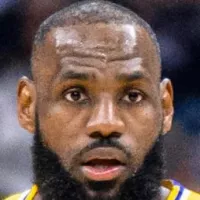
LeBron James nicknamed King James is a professional basketball player...

Michael Jordan often known as MJ is a businessman and...
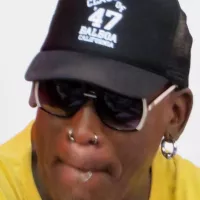
Dennis Rodman is an American former professional basketball player known...
The Los Angeles Lakers are a professional basketball team based...

Los Angeles is the most populous city in California and...
Trending
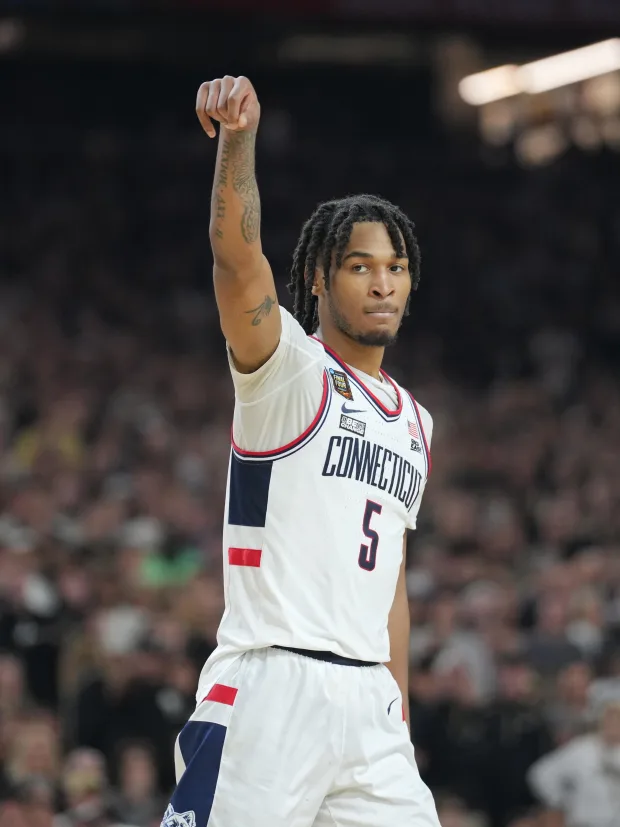
11 months ago Stephon Castle Predicts Final Four, Spurs Prank Rookie, Tennessee's March Madness Hopes
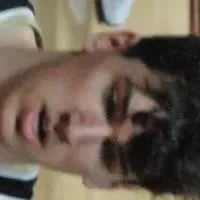
4 months ago Keegan Murray sidelined with UCL tear and thumb injury: Kings face setback.
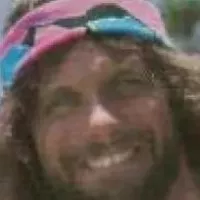
Randy Poffo known as Macho Man Randy Savage was a prominent figure in professional wrestling notably in WWF and WCW...
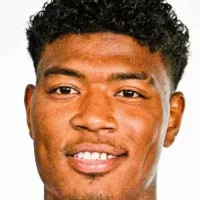
3 months ago Lakers Defeat Trail Blazers 123-115, Smith shines as unexpected hero alongside Hachimura.

4 months ago Denis Shapovalov discusses marriage, balance, comeback, and upcoming matches in Paris and Basel.
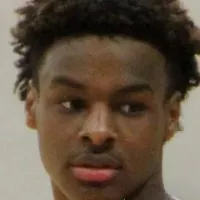
3 months ago Bronny James' Second Lakers Start: Stats, Points, and Reaction Amidst Injuries.
Popular

Kid Rock born Robert James Ritchie is an American musician...
The Winter Olympic Games a major international multi-sport event held...

XXXTentacion born Jahseh Dwayne Ricardo Onfroy was a controversial yet...

Barack Obama the th U S President - was the...

Michael Jordan often known as MJ is a businessman and...

Melania Trump a Slovenian-American former model has served as First...